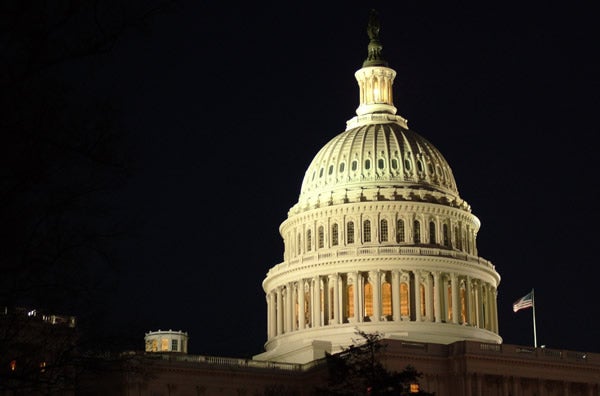The no-debt-limit extension bill that was introduced after 9 p.m. on Monday night manages to increase not just the debt, but spending as well.
This bill fails taxpayers in two important ways:
Blank Check Borrowing Authority. Misleadingly termed “The Temporary Debt Limit Extension Act,” the act actually “suspends,” not extends, the debt limit. If anything, the act extends no-debt-limit.
Simply put, the act renders the debt limit inoperative. Another way of saying it is that Congress is handing itself and the Obama administration a blank check to borrow—for an entire year!
From page 1 of the bill:
“Section 3101(b) of title 31 [Public debt limit], United States Code, shall not apply for the period beginning on the date of the enactment of this Act and ending on March 15, 2015.”
This matters because when Congress fails to limit the debt it effectively abdicates its constitutional power to control borrowing. This means unchecked and unaccountable borrowing, which encourages higher deficit-spending and even greater debt. At nearly $17.3 trillion, or more than $140,000 for every American household, failing to put a debt limit in place to protect taxpayers from even more reckless spending is beyond irresponsible.
Higher Spending Today for Promised Savings Tomorrow. A prudent Congress would put the budget on a path to balance in order to avoid a much worse fiscal crisis in the future—deciding to spend less and borrow less going forward. But with this bill, Congress is proposing to spend more and borrow more.
The bill would reverse a cut in veterans’ early retirement benefits, applying the COLA reduction agreed to in the Ryan-Murray budget deal only to those entering military service this year. To get the Congressional Budget Office to score the bill as a small deficit-reduction proposal, Congress is applying a typical Washington gimmick that also last reared its ugly head in the Ryan-Murray budget deal: spend more now for promised savings later.
In particular, Congress would extend the mandatory sequester, which mostly affects Medicare, for an additional year, through 2024. And in typical Washington fashion, Congress would set up a $2.3 billion slush fund for a later “doc fix” with “savings” not going to “offset” the veterans’ benefits. The problem is that the spending is real, but the offsetting deficit-reduction may very well never materialize
This blank check debt limit bill is very bad news for taxpayers. With it, Congress would abdicate not only its constitutional power to control the borrowing of the U.S. government, but it also signals a return to the destructive days of bipartisan agreements that increase spending and the debt.
